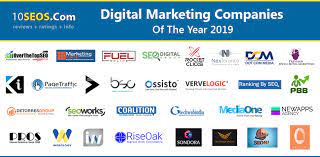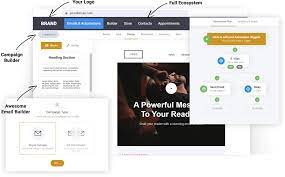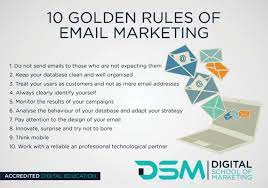SEO Digital Marketing: The Key to Unlocking Online Success
In today’s digital age, businesses need to have a strong online presence to succeed. But with so many companies vying for attention on the internet, how can you make sure your business stands out? The answer lies in SEO digital marketing.
SEO (Search Engine Optimization) is the process of optimizing your website and online content to rank higher in search engine results pages (SERPs). By improving your search engine ranking, you increase your visibility and make it easier for potential customers to find you online.
But SEO is just one part of digital marketing. In combination with other strategies like social media marketing, email marketing, and content marketing, SEO can help you create a comprehensive digital marketing plan that drives traffic and boosts sales.
Here are some key benefits of integrating SEO into your digital marketing strategy:
Increased Visibility: When your website ranks higher in search engine results pages, more people will see it. This increased visibility translates into more traffic and more potential customers.
Better User Experience: A well-optimized website is easy to navigate and provides high-quality content that meets the needs of its users. By improving the user experience on your site, you increase the chances of visitors staying longer and converting into customers.
Cost-Effective: Compared to traditional advertising methods like print or TV ads, SEO digital marketing is relatively inexpensive. While there may be some upfront costs associated with optimizing your site, the long-term benefits far outweigh the investment.
Measurable Results: With tools like Google Analytics, you can track the success of your SEO efforts in real-time. This allows you to adjust your strategy as needed and see tangible results from your efforts.
So how do you get started with SEO digital marketing? Here are some tips:
Conduct Keyword Research: Identify keywords that are relevant to your business and incorporate them into your website’s content.
Optimize Your Website: Make sure your website is easy to navigate, has high-quality content, and is mobile-friendly.
Build Quality Backlinks: Backlinks (links from other websites to your site) are an important factor in SEO. Focus on building quality backlinks from reputable sources.
Stay Up-to-Date with Best Practices: SEO is constantly evolving, so it’s important to stay up-to-date with the latest best practices and algorithm updates.
In conclusion, SEO digital marketing is a powerful tool that can help businesses of all sizes succeed online. By optimizing your website and integrating SEO into your digital marketing strategy, you can increase visibility, improve user experience, and drive traffic and sales. So what are you waiting for? Start implementing these strategies today and unlock the full potential of your online presence.
Answers to Top 6 SEO and Digital Marketing Questions
- What is SEO and how does it work?
- How can I improve my website’s SEO?
- What are the best SEO practices for 2021?
- How do I measure the success of my SEO efforts?
- What are the benefits of digital marketing?
- What tools do I need to use for effective digital marketing?
What is SEO and how does it work?
SEO stands for Search Engine Optimization. It is the practice of optimizing a website and its content to rank higher in search engine results pages (SERPs) for specific keywords and phrases. The goal of SEO is to increase visibility and attract more organic traffic to a website.
Search engines like Google use complex algorithms to determine which websites and pages should appear in their search results. These algorithms take into account various factors, including the relevance, quality, and authority of a website’s content.
To improve your website’s ranking in search engine results pages, you need to optimize it for both on-page and off-page factors. On-page optimization involves optimizing the content on your website, including the use of relevant keywords, meta descriptions, header tags, and internal linking. Off-page optimization involves building high-quality backlinks from other reputable websites to your site.
SEO also involves technical optimization of a website’s structure and code. This includes ensuring that your website is mobile-friendly, has fast page load times, has a sitemap that search engines can easily crawl, and uses secure HTTPS protocol.
SEO is an ongoing process that requires continuous monitoring and adjustments. Search engines constantly update their algorithms, so it’s important to stay up-to-date with best practices and algorithm updates to maintain or improve your rankings.
In summary, SEO is about optimizing a website’s content, structure, and code to rank higher in search engine results pages. By improving visibility and attracting more organic traffic to your site through SEO efforts, you can increase brand awareness, drive more leads/sales conversions or achieve other online business goals.
How can I improve my website’s SEO?
Improving your website’s SEO (Search Engine Optimization) can help you rank higher in search engine results pages (SERPs), increase your visibility, and drive more traffic to your site. Here are some tips to improve your website’s SEO:
Conduct Keyword Research:
Identify keywords that are relevant to your business and incorporate them into your website’s content. Use tools like Google Keyword Planner or SEMrush to find keywords that have high search volume and low competition.
Optimize Your Website:
Make sure your website is easy to navigate, has high-quality content, and is mobile-friendly. Use descriptive titles and meta descriptions for each page on your site, and include alt tags for images.
Build Quality Backlinks:
Backlinks (links from other websites to your site) are an important factor in SEO. Focus on building quality backlinks from reputable sources by creating valuable content that other websites will want to link to.
Use Social Media:
Social media can be a powerful tool for driving traffic to your site and improving SEO. Share links to your content on social media platforms like Facebook, Twitter, and LinkedIn.
Stay Up-to-Date with Best Practices:
SEO is constantly evolving, so it’s important to stay up-to-date with the latest best practices and algorithm updates. Follow industry blogs like Moz or Search Engine Journal for the latest news and trends in SEO.
Monitor Your Analytics:
Use tools like Google Analytics or SEMrush to track the success of your SEO efforts in real-time. This allows you to adjust your strategy as needed and see tangible results from your efforts.
In conclusion, improving your website’s SEO takes time and effort, but it can have a significant impact on the success of your business online. By following these tips and staying up-to-date with best practices, you can improve your website’s visibility, drive more traffic to your site, and ultimately increase your bottom line.
What are the best SEO practices for 2021?
As search engine algorithms continue to evolve, it’s important to stay up-to-date with the latest SEO practices. Here are some of the best SEO practices for 2021:
Focus on User Experience: Search engines are increasingly prioritizing user experience, so it’s important to make sure your website is easy to navigate and provides high-quality content that meets the needs of its users.
Optimize for Mobile: With more people accessing the internet on their mobile devices, it’s crucial that your website is mobile-friendly. This means using responsive design, optimizing page speed, and ensuring that your site is easy to use on a small screen.
Create High-Quality Content: Content is still king when it comes to SEO. Focus on creating high-quality, informative content that provides value to your audience. Use keywords strategically and avoid keyword stuffing.
Build Quality Backlinks: Backlinks (links from other websites to your site) are an important factor in SEO. Focus on building quality backlinks from reputable sources by creating shareable content and reaching out to influencers in your industry.
Optimize for Voice Search: As more people use voice assistants like Siri and Alexa, optimizing for voice search is becoming increasingly important. Focus on long-tail keywords and natural language queries.
Use Structured Data Markup: Structured data markup helps search engines understand the content of your website better. Use schema markup to provide additional information about your business, products, or services.
Optimize for Local Search: If you have a physical location or serve a specific geographic area, optimize your website for local search by including location-specific keywords and creating Google My Business listings.
In summary, focusing on user experience, mobile optimization, high-quality content creation, building quality backlinks, optimizing for voice search, using structured data markup, and optimizing for local search are some of the best SEO practices for 2021. By implementing these strategies, you can improve your search engine rankings and drive more traffic to your website.
How do I measure the success of my SEO efforts?
Measuring the success of your SEO efforts is crucial to understanding how well your website is performing and where you need to make improvements. Here are some key metrics you can use to measure the success of your SEO efforts:
- Organic Traffic: Organic traffic refers to the number of visitors who come to your website through search engine results pages (SERPs). By tracking organic traffic, you can see if your SEO efforts are driving more visitors to your site.
- Keyword Rankings: Keyword rankings refer to where your website ranks in search engine results pages for specific keywords. By tracking keyword rankings, you can see if your SEO efforts are helping you rank higher for relevant keywords.
- Click-Through Rate (CTR): CTR refers to the percentage of people who click on your website’s link in search engine results pages. By tracking CTR, you can see if your title tags and meta descriptions are effectively enticing people to click through to your site.
- Bounce Rate: Bounce rate refers to the percentage of visitors who leave your site after only viewing one page. A high bounce rate could indicate that visitors aren’t finding what they’re looking for on your site, which could be a sign that you need to make improvements.
- Conversion Rate: Conversion rate refers to the percentage of visitors who take a desired action on your website, such as filling out a form or making a purchase. By tracking conversion rate, you can see if your SEO efforts are leading to more conversions and ultimately more revenue.
- Backlinks: Backlinks refer to links from other websites that point back to your site. By tracking backlinks, you can see if other sites consider yours as an authoritative source of information.
To track these metrics, use tools like Google Analytics and Google Search Console, which provide detailed insights into how people find and interact with your website. By regularly monitoring these metrics and making adjustments based on what you learn, you can continually improve your SEO efforts and drive more traffic and revenue to your site.
What are the benefits of digital marketing?
Digital marketing has become an essential part of any modern business strategy. Here are some of the key benefits of digital marketing:
Increased Reach: Digital marketing allows businesses to reach a wider audience than traditional marketing methods. With the internet, businesses can target customers all over the world, regardless of their location.
Cost-Effective: Compared to traditional advertising methods like TV or print ads, digital marketing is often much more cost-effective. Many digital marketing channels, such as social media and email marketing, are free or have low costs.
Measurable Results: Digital marketing provides businesses with measurable results that can be tracked in real-time. This allows businesses to adjust their strategies as needed to achieve better results.
Increased Engagement: Digital marketing channels such as social media and email allow businesses to engage with customers in real-time. This engagement can help build brand loyalty and increase customer satisfaction.
Better Targeting: With digital marketing, businesses can target specific demographics and interests. This targeted approach means that businesses can reach the people most likely to be interested in their products or services.
Improved ROI: By targeting specific demographics and tracking results in real-time, businesses can improve their return on investment (ROI). This means that they can get more out of their advertising budget than they would with traditional advertising methods.
In conclusion, digital marketing offers many benefits for businesses looking to grow and succeed in today’s competitive marketplace. By leveraging digital channels such as social media, email, and search engines, businesses can reach a wider audience, engage with customers in real-time, improve ROI, and achieve measurable results.
What tools do I need to use for effective digital marketing?
Effective digital marketing requires a combination of tools to achieve the best results. Here are some of the essential tools you need to use for effective digital marketing:
- Website Analytics Tools: Google Analytics is a popular tool that allows you to track and analyze website traffic, user behavior, and other metrics. This tool helps you understand how users are interacting with your website and what changes you can make to improve their experience.
- Social Media Management Tools: Social media management tools like Hootsuite, Buffer, and Sprout Social help you manage multiple social media accounts from one dashboard. These tools allow you to schedule posts in advance, track engagement metrics, and monitor brand mentions across social media platforms.
- Email Marketing Tools: Email marketing tools like Mailchimp, Constant Contact, and Campaign Monitor help businesses create and send email campaigns to their subscribers. These tools offer features like automation, segmentation, A/B testing, and analytics to optimize email campaigns for maximum impact.
- Content Creation Tools: Content creation tools like Canva or Adobe Creative Suite help businesses create high-quality visual content for their website or social media platforms. These tools offer templates, design elements, and other features that make it easy for even non-designers to create professional-looking graphics.
- SEO Tools: SEO tools like SEMrush or Ahrefs help businesses optimize their website for search engines by analyzing keywords, tracking backlinks, monitoring competitors’ rankings, and suggesting improvements based on data-driven insights.
- Paid Advertising Platforms: Paid advertising platforms like Google Ads or Facebook Ads allow businesses to reach their target audience through paid search or display ads on search engines or social media platforms.
By using these essential digital marketing tools effectively in combination with each other as part of your overall strategy can help your business reach its goals more effectively in the online space.




